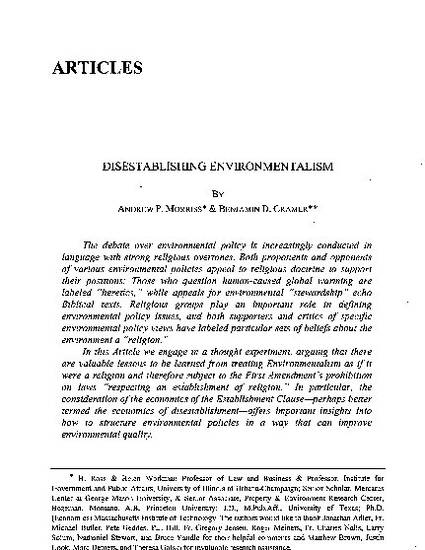
The debate over environmental policy is increasingly conducted in language with strong religious overtones. Both proponents and opponents of various environmental policies appeal to religious doctrine to support their positions: Those who question human-caused global warming are labeled "heretics, " while appeals for environmental "stewardship" echo Biblical texts. Religious groups play an important role in defining environmental policy issues, and both supporters and critics of specific environmental policy views have labeled particular sets of beliefs about the environment a "religion." In this Article we engage in a thought experiment, arguing that there are valuable lessons to be learned from treating Environmentalism as if it were a religion and therefore subject to the First Amendment's prohibition on laws "respecting an establishment of religion." In particular, the consideration of the economics of the Establishment Clause--perhaps better termed the economics of disestablishment-offers important insights into how to structure environmental policies in a way that can improve environmental quality.
Available at: http://works.bepress.com/andrew_p_morriss/170/
